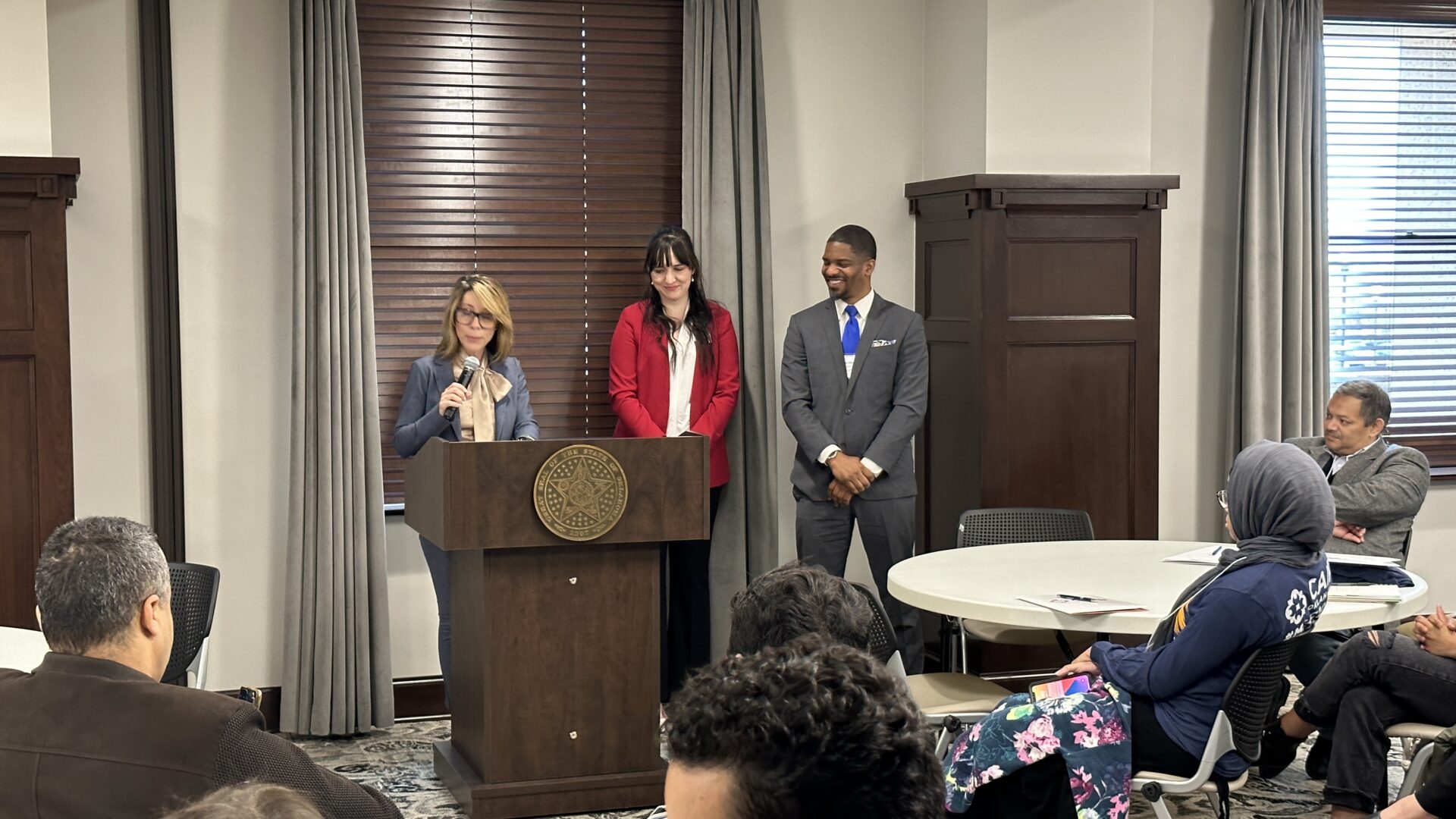The importance of engaging with elected leaders in an era of increased polarization came to the forefront time and time again as Muslim Oklahomans gathered in Oklahoma City on Monday for an annual advocacy event.
More than 100 people registered for the ninth annual “Muslim Day at the Capitol” hosted by the Council on American-Islamic Relations-Oklahoma chapter. Several organizers said the crowd was smaller than in previous years because of spring break. Imad Enchassi, senior imam of the Islamic Society of Greater Oklahoma City, said the event typically draws a large contingent of students, teachers and some parents from Mercy School, an Islamic school in northwest Oklahoma City, and a similar school in Tulsa, but the schools were out for break.
Still, there were plenty of youths and young adults among the crowd that gathered on the second-floor rotunda and a meeting space for brief opening remarks, break-out sessions and lunch. Former U.S. Rep. Kendra Horn gave the keynote speech, and the group gathered for prayer after the last session.
Masood Abdul-Haqq, CAIR-OK’s board chairman, encouraged the crowd to take seriously the event theme of “Being Civically Courageous.”
“This place is literally yours,” he said. “We’re literally in the building that everybody in here is here to serve you. Your tax dollars literally pay for this place so never let somebody tell you that you don’t belong and never allow anyone to make you feel other than.”
Adam Soltani, CAIR-OK executive director, emphasized the prevailing message of the day.
He reminded the group that a former Republican state representative, John Bennett, called him and Enchassi “terrorists” when they showed up to a hearing on an interim study on radical Islam, Shariah law, the Muslim Brotherhood and the radicalization process held several years ago at the state Capitol. Soltani said he and Enchassi sat in “silent protest” to the proceedings, and the important takeaway was they kept showing up to the Capitol to discuss key issues despite such incidents.
“Things will only be good when we choose to be engaged and when we keep pushing for change,” he said.
Retired college professor Amir Khaliq, 68, said he attended Muslim Day activities because he knew it was important to advocate on behalf of his Muslim community.
“It’s about interacting with our representatives and letting them know that we are here, we value their services, but at the same time, we want them to understand us and be able to represent our viewpoints with a greater degree of clarity,” Khaliq said. “Especially considering the fact that the political environment is becoming increasingly polarized and the fact that people are somewhat unsure where their representatives are going, it’s important that we at least meet with them more frequently and let them know what our position is on these issues, how they can represent our viewpoint.”
Meanwhile, the absence of protesters was noticed.
“It’s happily boring,” Jennifer Hund, director of CAIR-OK’s Resource Center for Afghan Refugees, said in reference to the lack of anti-Islam demonstrations.
In previous years, particularly the first four or five, demonstrators stood outside the Capitol greeting Muslims with anti-Islam signage and rhetoric as they walked into the building. Starting with the first “Muslim Day at the Capitol,” spiritual leaders and individuals from other faith traditions created what they described as an “interfaith corridor of support” to welcome Muslims with positive greetings.
Monday, Hund and other interfaith supporters stood near the Capitol’s south entrance once again to welcome Muslims.
Marshal Gimpel, congregational president of First Unitarian Church of Oklahoma City, said the lack of protesters was a sign of the success of the “corridor of support” and Muslim Day at the Capitol.
“We’re just out here showing support for our fellow residents and citizens of Oklahoma City, showing that this is a place that can be welcoming and that they, like any other resident or citizen here, have a perfect right to visit with their representatives, make their feelings known,” he said. “Hopefully, their representatives will want to see them because they are their constituents.”

